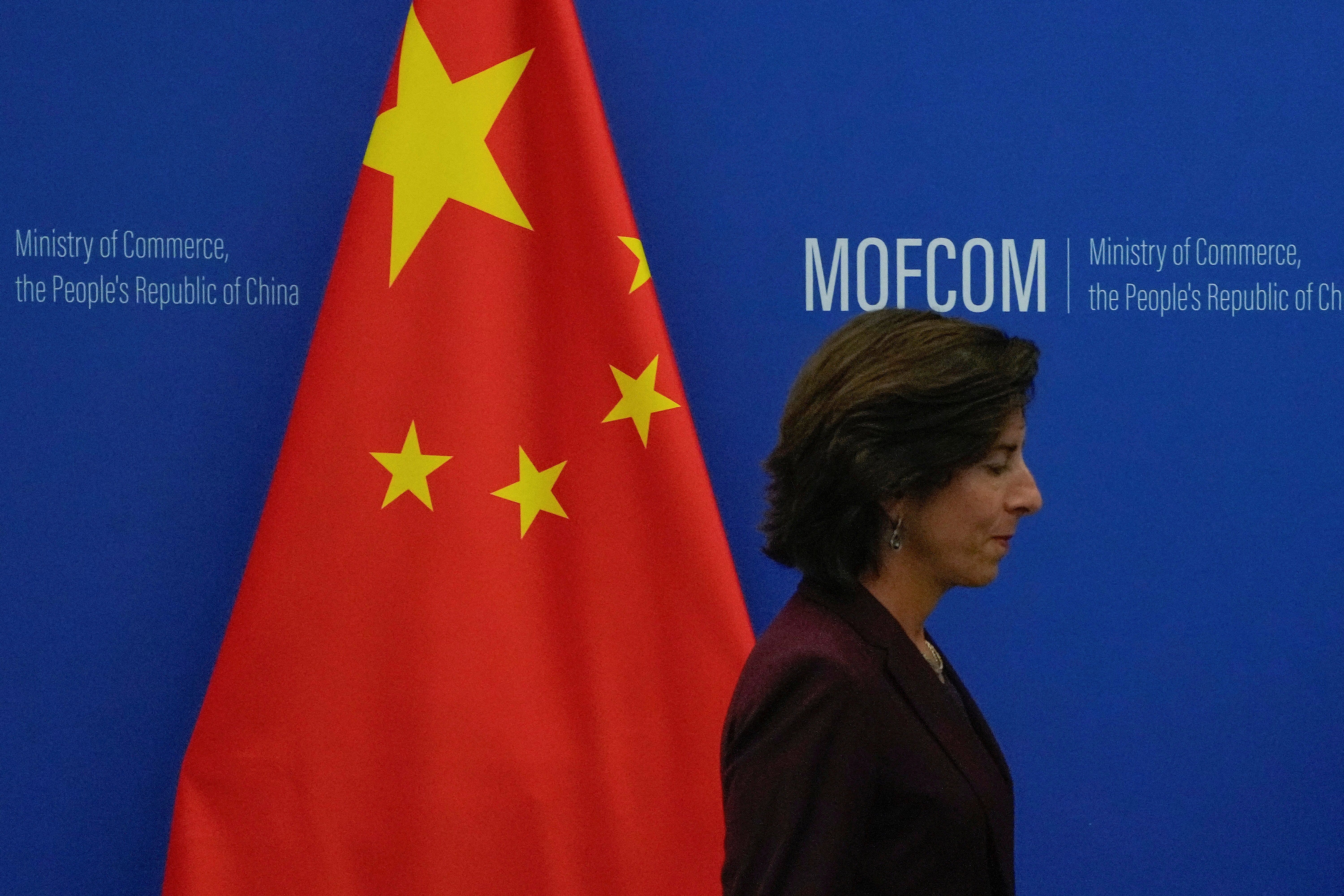It's no secret that the US and China aren’t communicating well these days. But Commerce Secretary Gina Raimondo said that she and her Chinese counterpart, Wang Wentao, made significant strides toward changing that when they met in Beijing on Monday.
Over the past year, the US has used export controls and investment restrictions to deny China access to advanced technology. National Security Advisor Jake Sullivan has called export controls the “new strategic asset” for imposing “costs on adversaries” and keeping the US as far ahead as possible in important technologies, but China has condemned them as being part of a new containment strategy.
Raimondo, for her part, is trying to narrow the scope of export controls and investment restrictions, asserting that the majority of US-China trade is unrelated to national security. She is hoping to increase exports of non-national security-related items like agricultural, health and beauty products, and entertainment to China as a result of the meetings.
Ahead of Raimondo’s trip, 27 Chinese companies were removed from a blacklist limiting access to US technology, a signal that Washington wanted this meeting to be about increasing cooperation and de-escalating trade tensions.
The two commerce secretaries committed to taking part in working groups and in information sharing about trade issues, a remarkable improvement in communications.
This progress reflects the importance of the US-China trade relationship to both countries. China is eager to revive international investment amid its economic downturn, and the Biden administration wants to “de-risk” the relationship – maintaining cooperation and communication, and benefiting from China’s gigantic market while keeping key technologies out of Beijing’s hands.
More For You
Most Popular
Our sharing success program reflects BofA’s commitment to teammates and driving economic opportunity for employees and communities. The Proof: Since 2017, our program has awarded nearly $6.8B to employees—recognizing their contributions and investing in their future. Learn more.
WATCH THE REPLAY: At this year's World Economic Forum in Davos, Switzerland, our Global Stage panel discussion will examine the growing infrastructure around AI, how countries are tackling AI adoption, and the ways in which local and supranational industries might benefit from this rapidly accelerating technology. Watch at gzeromedia.com/globalstage
